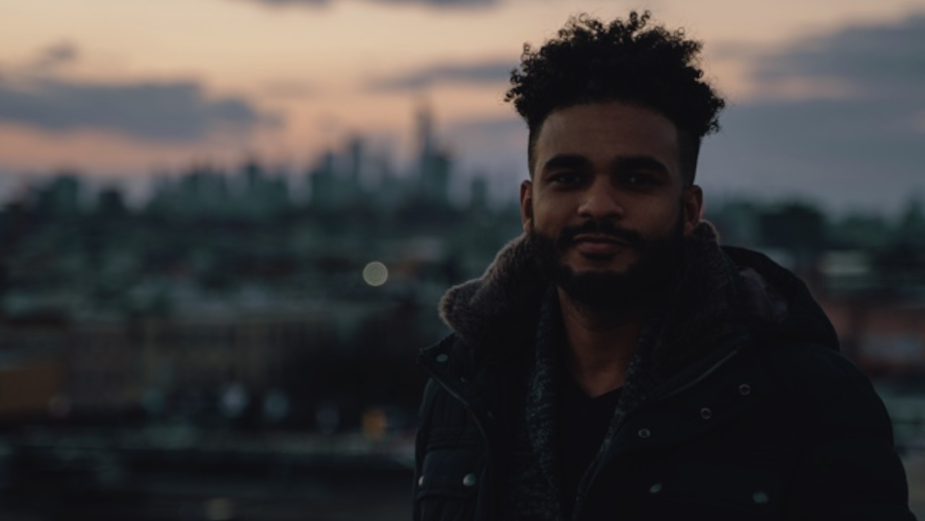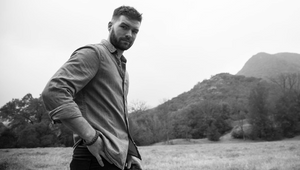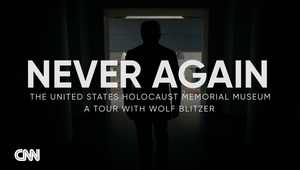
The Directors: Mwita Chacha

Mwita looks to real-life to elevate the story. He is a director passionate about sharing the beauty, struggles, and everyday life of often-overlooked cultures. Mwita draws inspiration from multiple cultures in his background and new ones experience in his travels. His raw docu-style approached shines authenticity on the commercials and films he creates.
Name: Mwita Chacha
Location: Washington DC
Repped by/in: Cry
Awards: Vimeo Staff Pick, Cinematography Award Storytelling Parade, Best Doc Hollywood Short Film Festival, Best Short Documentary LA Short Film Festival, Best Cinematography Philadelphia 48 hour film festival, Best Short Documentary Outside the Box Film Festival
LBB> What elements of a script sets one apart from the other and what sort of scripts get you excited to shoot them?
Mwita> I want to create work driven by style and culture. Something that is unique but also relates to my own experiences in some way. I’m excited when I read or write about emotion, experience, or relationship that I can relate to my own life, but can then elevate and exaggerate it through compelling cinematography, music, and sound.
LBB> How do you approach creating a treatment for a spot?
Mwita> The first thing I do is head to my watch history. I check my film diary on Letterboxd and liked videos on Youtube and Vimeo to see what stands out as relevant inspiration. If I want to go deeper I’ll review ShotDeck for frames and Spotify and Musicbed for songs to inspire me. I’m constantly saving links to stuff so it’s usually not too long until I’ve pulled together plenty of inspiration. I think bullet points are the ideas in a Google Doc. For larger projects, I’ll pull frames and create a keynote presentation.
LBB> If the script is for a brand that you're not familiar with/ don’t have a big affinity with or a market you're new to, how important is it for you to do research and understand that strategic and contextual side of the ad? If it’s important to you, how do you do it?
Mwita> I think it depends on the ad. For something short with a VO, I don’t think a ton of context is necessary to evoke an emotion for people to find out more. I have a style that can be pretty quickly applied to various companies. However, if we’re doing a longer project or interview-based work, a lot of time is put into research and pre-interviews to learn more about the company and industry.
LBB> For you, what is the most important working relationship for a director to have with another person in making an ad? And why?
Mwita> I would say the relationship between a director and the subject of the ad is often overlooked. That could be the difference between a standard interview and a phenomenal one and making that experience enjoyable for the person who is being represented. Second to that would be the client. That trust and communication are crucial for success. There is often a give and take in the approach to the outcomes the client desires. A creative vision that engages an audience, but ultimately results in action.
LBB> What type of work are you most passionate about - is there a particular genre or subject matter or style you are most drawn to?
Mwita> I would say my perfect project would create a positive economic impact for Africa. It will embrace and celebrate the vibrant music, sounds, styles, and culture. I love slice-of-life moments where we peek into someone else’s world and perspective. I think our world needs that empathy for those who think differently than us so that we can learn and grow from everyone's contributions leading to progress around the globe.
LBB> What misconception about you or your work do you most often encounter and why is it wrong?
Mwita> I think most clients and too many filmmakers miscalculate how to spend their time in the production process. I think more and more work should be put into pre-production and development so that we can cut down on production and post. Sometimes it’s the smallest decisions on a piece of paper that can impact days worth of work on the back end. We need to be more upfront and thoughtful in our approach and communicate that vision to our team so that we can all take that journey together on the smoothest road possible.
LBB> Have you ever worked with a cost consultant and if so how have your experiences been?
Mwita> No
LBB> What’s the craziest problem you’ve come across in the course of a production – and how did you solve it?
Mwita> The first time I used a drone on a production. I had bought one a few months before and had put in some practice. I was heading to Kenya for several months of production for a handful of productions. On the first day, I took the drone up into the air. The CEO of a non-profit I was working on was looking over my shoulder. I fly out about 200 feet and it just drops straight down into a neighbour's property. This is rural Kenya and they have no clue what this thing is. I follow the commotion and there is the drone all in one piece. It landed safely in a lone bush….but there was an angry woman standing in front of it with a machete. A growing crowd arrived and someone translated her rantings. Basically, she said “you pay me a bunch of money or I’m chopping this thing up with my machete. People were pushing in to take a look and in the commotion, I just grabbed it and ran. I returned embarrassed and ashamed to the property, but the CEO was cracking up and continued to tell the story for years. I also got the drone back up and running and have had much better experiences since.
LBB> How do you strike the balance between being open/collaborative with the agency and brand client while also protecting the idea?
Mwita> Every relationship and project will find its own balance. The right balance will be found with open communication and asking the right questions. However on a larger scale, if you find you are butting heads right from the beginning I do like to take a step back and re-evaluate. I’ll send over examples of my work and ask them if there are some projects that they like and identify with. If the answer is yes, then I ask them to trust me and we can work through it. But if not, I remind them that we do not have to work together. I have a specific style and approach and if you push me too far from that no one will be happy at the end.
LBB> What are your thoughts on opening up the production world to a more diverse pool of talent? Are you open to mentoring and apprenticeships on set?
Mwita> I think that’s awesome and am open to that. Although I think I still have a ton to learn from others.
LBB> How do you feel the pandemic is going to influence the way you work into the longer term? Have you picked up new habits that you feel will stick around for a long time?
Mwita> I’ve always loved having a home office and connecting on video calls. It is convenient and flexible but I always feared that clients would view a home office as unprofessional and most people preferred phone or in-person coffee to video chat because they couldn’t figure it out. Thanks to the pandemic, my preferences are mainstream.
LBB> Your work is now presented in so many different formats - to what extent do you keep each in mind while you're working (and, equally, to what degree is it possible to do so)?
Mwita> From a creative standpoint, I want to know what avenue a client will want to prioritise from the start. Is it primarily for an event, sales meetings, social, website, television? I recommend our approach that caters to that audience even if the video will be used in multiple contexts.
LBB> What’s your relationship with new technology and, if at all, how do you incorporate future-facing tech into your work?
Mwita> I take the time to learn new technologies and have done virtual productions and 360 videos, however, I don’t push to incorporate them into projects without a compelling reason. I can’t pretend to know what is a flashy trend and what will ultimately stick around and be a true benefit for my client to embrace early. I usually let them know the possibilities, and they can choose if we want to do anything with it.
LBB> Which pieces of work do you feel really show off what you do best – and why?
Mwita> Welcome To Hong Kong
Welcome to Hong Kong really emphasises my ability to immerse myself in a new environment and share that experience with others. It shows kinetic editing, immersive sound design, and awesome music. This project took a lot of patience. Some of the shots took hours, just getting to the right spot and waiting for the perfect moment, or tediously creating hyper-lapses one photo and step at a time. The final shot is a long day-to-night time-lapse which is a huge investment of time that isn’t afforded on most of my projects.
Bringing Hope
Is an opportunity to help share someone's story that I find inspiring. I do this often, but Bringing Hope is about my father, and his passion and experiences really shine through to rally people behind a cause.
The Ones Who Believe
This ad is all about creating a feeling for what it’s like to be a part of a community in a short amount of time. It inspires new and potential students and is a part of school pride when the students see themselves. These are not actors, but the actual students and teachers in the school and they love what it means to be a part of their school with others.
ELEVATE
Has been used to raise several hundred thousand dollars at Horizon’s annual gala. I love how we embrace the natural beauty of the children’s smiles and the environments they live in. The music and the mission get me excited every time. Let’s go do something!










